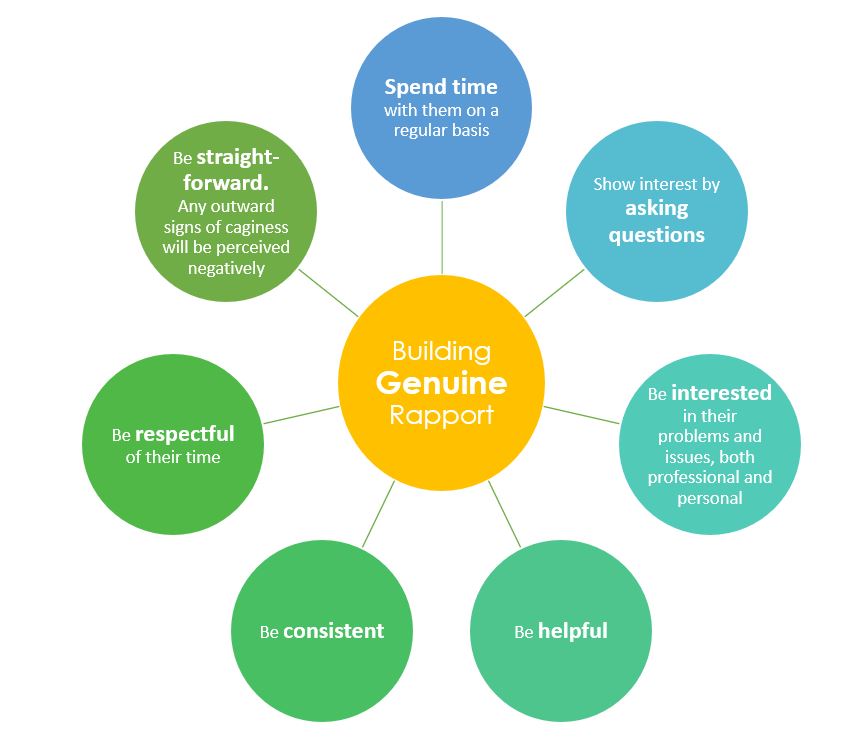Trust, Your Employees, and Lady Gaga

Positive relations with employees start with trust. If you break the trust, you have a long journey ahead.
You may be in one of four scenarios:
- You have trust with your staff and want to ensure you maintain it.
- You had trust with the employees, made a mistake, and are working on building back trust.
- You do not have trust with your team and you need to climb out of a hole.
- You do not have trust and do not even realize you have a problem.
Once you identify which of these situations you may be in, you are on the road to building a culture of trust within your organization. Simply realizing where you are is the first step.
Next, stop these nine toxic practices right now:
- Treating the employee like an enemy even if they are the messenger of not-so-great news. This is belittling to the messenger.
- Discouraging the disclosure of bad news. You need that bad news to operate the business. If you lack an "open door" policy on this, employees will do everything possible to avoid communicating.
- Making policy exceptions to benefit you only. Employees see right through it. You may be the owner or dealer, but this smacks of inequality and erodes morale.
- Lying. Even partial truths will be perceived as a lie. Employees are much smarter than you think.

- Failing to listen. In a call or Zoom or meeting, if you are interrupting because you are in a hurry, not understanding, or not finding the facts by asking questions to the employee, then you are making a mistake. You are not only frustrating the employee, you are not collecting all the important information. Your decisions will be based on a lack of accurate information, so you may be building a house of cards. Simultaneously, you are frustrating the employee and getting poor information. That's a double-whammy.
- Being discriminatory against certain employees. Stop harping and picking on certain employees (i.e. showing blatant favoritism). This creates resentment and animus. Endeavor to treat everyone equally.
- Practicing nepotism. If you treat your children in the business differently than the other employees, you will create deep-seated resentment — another punch to the gut to your employees' morale.
- Duplicity. Talking to employees about other employees. You may think you are confiding, but it will come across as gossip.
- Piling on. Bosses tend to pile too much work on top of those who are pulling their weight, plus some. Piling excessive work on to those workers will create resentment. This is not where you want to go. That person will be miserable. If you have an employee who is highly productive, you build around them. Give them a few employees of their own to support the increased workload. Too much is simply too much.
To rebuild employee relations, implement these positive five (5) habits:
- Build genuine rapport. Trust starts with rapport and an understanding that rapport is a person-to-person interaction. Reach out and establish rapport with those team members with whom you feel trust issues exist.

- Have an open door policy for all employees. Make it clear an employee can come to see you when their direct report manager is not handling their issues.
- Return phone calls and respond to emails. When employees need guidance and you don't return their calls or respond to emails, it builds animosity because sometimes they cannot complete assignments (or move forward in their work). Without getting answers from you, things pile up on their desks and that doesn't feel good as it creates stress.
- Follow chain of command. While employees should follow the chain of command, so should the boss(es). When you, as the boss, break the chain of command, you erode the confidence of the managers and those employees who report to the managers. This creates feelings of mistrust and wariness.
- Monitor websites like Glassdoor. Often, current employees will review you online while they are still employed. You should respond to the online complaints in the same non-defensive manner as you do with customer complaints. It is usually very obvious who posted the review. Invite that person (not summon them) to your office so you can try to diagnose where the friction lies.
To implement a culture of trust, make these four (4) changes:
- Equivalent pay. Ensure an employee's pay is (at least) commensurate with their responsibilities.
- Promises. If you make a promise to an employee, put it in writing. Then, follow-up to guarantee the item is brought to a conclusion.
- Written policies. Have an Employee Handbook or Guidebook communicating clear expectations about vacations, paid holidays, sick days, and days off. When you meddle with time away from work and pay, you erode trust and create anger.
- Assets. Treat your employees as valuable assets. They are the heart and soul of your business.
A culture of trust within your dealership creates satisfied employees. Ultimately, this will reduce turnover, create efficiencies and will make you more money.
To conclude, Lady Gaga also opined, "You have to stop crying, and you have to go kick some ass." So off to work you go!
Tags:
Similar Articles

Tom Kline
DMM Expert
Tom Kline is a third generation “car guy” and former dealership owner with more than thirty years of experience. Kline is the Lead Consultant & Founder of Better Vantage Point, a specialty consulting firm focused on protecting and safeguarding dealers by employing targeted risk transference, regulatory compliance, and risk mitigation techniques. Additionally, Kline works with both tech and start-up companies and routinely provides expert witness testimony to defend dealerships against lawsuits.
Kline’s writing and ideas have been featured in multiple prominent national publications, such as the Wall Street Journal and Automotive News. Kline works with both publicly-held and private dealerships, routinely speaks at national conferences and 20 Groups, and frequently presents webinars on current events. Tom has received various trade group endorsements and is a sought after podcast guest.
Get Curated Insights
Content worth the click
Related Articles








